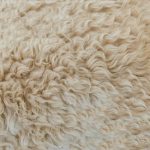You're considering French terry as a material for your bedding, but you're not sure if it's the right choice. French terry is known for its soft, absorbent, and lightweight properties, which can create a comfortable sleeping experience. However, its unique characteristics also raise some questions. For instance, will its breathability be enough to regulate body temperature and prevent overheating? And how will its durability hold up to repeated washing and use? As you weigh the pros and cons, it's essential to examine the advantages and potential drawbacks of using French terry for bedding – and that's exactly what we'll explore next.
Table of Contents
French Terry Fabric Characteristics
French terry fabric is characterized by its soft, absorbent, and lightweight properties, making it an ideal choice for bedding. When you touch French terry, you'll notice its plush pile and smooth surface, which provide a comfortable texture against your skin.
The fabric's absorbency is due to its unique weave, which allows for excellent moisture-wicking properties. This means that French terry can help keep you dry and comfortable throughout the night.
French terry fabric is also incredibly breathable. This is because the fabric's weave allows for airflow, which helps regulate body temperature. Whether you tend to sleep hot or cold, French terry's breathability can help keep you comfortable.
Additionally, French terry is often made from natural fibers like cotton, which are gentle on skin and durable. Overall, French terry's unique combination of softness, absorbency, and breathability make it a popular choice for bedding.
Advantages of Using French Terry
French terry is an excellent choice for bedding due to its numerous benefits.
When you choose French terry, you can expect a combination of advantages that will make your bedding stand out.
These advantages include its softness and breathability, as well as its durability and ease of care.
Softness and Breathability
French terry's unique weaving process gives it a softness that's hard to match, making it an ideal choice for bedding that will gently caress your skin as you sleep.
You'll appreciate the gentle texture that French terry provides, especially if you're someone who values a comfortable sleeping experience.
The softness of French terry is also beneficial for people with sensitive skin, as it won't irritate or scratch your skin like some other fabrics might.
In addition to its softness, French terry is also highly breathable, which makes it perfect for regulating body temperature during sleep.
You won't feel too hot or too cold, as the fabric allows for airflow and moisture wicking.
This means you'll sleep more soundly and wake up feeling refreshed and rejuvenated.
The breathability of French terry also helps to prevent the buildup of sweat and odor, keeping your bedding fresh and clean.
Durability and Longevity
While the softness and breathability of French terry make it an excellent choice for bedding, its durability and longevity are equally impressive, ensuring that your investment in a comfortable sleeping experience will last for years to come.
You'll appreciate that French terry can withstand the wear and tear of daily use, resisting pilling and snagging with ease. This means you can enjoy a restful night's sleep without worrying about your bedding deteriorating quickly.
When you choose French terry for your bedding, you're investing in a fabric that will retain its shape and softness even after multiple washes and uses. Its durability is due in part to the dense weave of the fabric, which creates a sturdy yet flexible material that can withstand the rigors of daily life.
Additionally, French terry is less prone to shrinkage, ensuring that your bedding will maintain its size and fit even after repeated washing. By opting for French terry bedding, you can enjoy a comfortable and restful sleep for years to come, without the need for frequent replacements.
Easy Care Fabric
One of the biggest advantages of choosing French terry for your bedding is its incredibly easy care, allowing you to throw it in the washing machine and dryer without worrying about it losing its shape or softness. This means you can enjoy the comfort and coziness of French terry without the hassle of hand washing or dry cleaning. When you're already busy with work, family, and other responsibilities, the last thing you want to worry about is delicate laundry.
Using French terry for your bedding also makes it easy to maintain a clean and hygienic sleeping environment. French terry's easy care benefits you in several ways:
- You can wash your French terry bedding as often as you need to, without worrying about damaging the fabric.
- French terry can withstand high temperatures, making it easy to sanitize your bedding and kill dust mites and other allergens.
Breathability and Moisture Wicking
As you consider French Terry for your bedding, you'll want to know how it handles temperature and moisture.
You're likely to be impressed by its breathability, which helps regulate body heat and prevent overheating.
When it comes to moisture, French Terry absorbs and wicks it away effectively, ensuring you stay comfortable throughout the night.
Temperature Regulation
French terry's unique weave allows for excellent breathability, letting air circulate and moisture evaporate, to keep you cool in the summer and warm in the winter. This temperature regulation is especially important for bedding, as it helps maintain a comfortable sleeping environment.
French terry's breathability is due to its loose weave, which creates small pockets of air that allow for airflow. This airflow helps to dissipate heat and moisture, preventing the buildup of sweat and discomfort.
- Cooling in the summer: French terry's breathability allows for airflow, keeping you cool and comfortable even on the hottest summer nights.
- Warming in the winter: The same airflow that keeps you cool in the summer helps to trap warmth in the winter, keeping you cozy and snug.
Moisture Absorption
French terry's ability to regulate temperature is closely tied to its moisture absorption properties, which allow it to wick away sweat and dry quickly, ensuring a comfortable sleeping environment.
When you sleep, your body temperature fluctuates, and you naturally sweat. French terry's moisture-wicking properties help to draw sweat away from your skin, allowing it to evaporate quickly. This process keeps you cool in the summer and warm in the winter, preventing that clammy feeling that can disrupt your sleep.
You'll appreciate French terry's breathability, which allows for airflow and moisture transfer. This means that heat and moisture can escape, rather than getting trapped in the fabric.
As a result, you'll stay dry and comfortable throughout the night. Additionally, French terry's moisture-wicking properties help to prevent the growth of bacteria and mildew, which can thrive in damp environments.
Softness and Durability Concerns
When it comes to choosing the right fabric for bedding, softness and durability are often top priorities, and French terry's unique characteristics can either meet or raise concerns in these areas. You might wonder if French terry is soft enough to provide a comfortable sleeping surface. The good news is that French terry is known for its plush pile and soft texture, making it a great choice for bedding.
However, its softness can also raise concerns about durability. French terry's softness can be a blessing, providing a cozy sleeping surface that's gentle on your skin.
On the other hand, its softness can make it more prone to pilling or snagging, which can affect its durability.
French terry's softness can be affected by the type of cotton used, with high-quality cotton resulting in a softer fabric.
The density of the terry loops can also impact softness, with denser loops providing a softer surface.
While French terry may not be as durable as other fabrics, its softness can make it a worthwhile trade-off for those who prioritize comfort.
Care and Maintenance Requirements
To keep your French terry bedding looking its best, it's essential to follow a few simple care and maintenance tips that can help extend its lifespan and maintain its softness.
When washing your French terry bedding, use cold water to prevent shrinkage and fading. Avoid using harsh detergents or bleach, as these can damage the fabric and cause it to lose its softness. Opt for a mild detergent specifically designed for washing delicate or sensitive fabrics.
When it comes to drying your French terry bedding, air dry it or use a low heat setting on your dryer. High heat can cause the fabric to shrink or lose its softness. Avoid over-drying your French terry bedding, as this can cause it to become stiff and rough.
Comparison to Traditional Bedding
When comparing French terry to traditional bedding materials like cotton or linen, you'll notice some key differences. French terry is known for its soft, plush pile, which can provide a cozy and warm sleeping surface. However, it may not be as breathable as traditional bedding materials, which can be a drawback for hot sleepers.
French terry is often softer than traditional bedding materials, making it a great choice for those who prioritize comfort.
French terry can be prone to pilling or snagging, which may reduce its lifespan compared to traditional bedding materials.
French terry bedding can be more affordable than traditional bedding materials, making it a budget-friendly option for those looking to upgrade their bedding without breaking the bank.
Practical Considerations for Use
Considering French terry's unique characteristics, it's essential to weigh its practical considerations for use in your bedroom. You'll want to think about how you plan to use your bedding, as French terry is best suited for casual, low-maintenance environments. If you tend to sweat a lot at night, French terry's moisture-wicking properties might be a major advantage. However, if you prefer a crisp, smooth fabric, you might find French terry's texture too soft and fuzzy.
Another crucial consideration is durability. French terry is known for its resilience, but it's not invincible. You'll need to wash and dry it regularly to prevent pilling and fraying. Additionally, French terry can shrink if not properly cared for, so make sure to follow the manufacturer's instructions.
Frequently Asked Questions
Is French Terry Prone to Pilling Over Time?
You might notice that French terry can pill over time, especially if you're washing and wearing it frequently. However, the extent of pilling depends on factors like fabric quality, washing methods, and personal wear and tear.
Can I Use French Terry for Summer Bedding Only?
You're considering French terry for summer bedding, and that's a great idea. Since it's a lightweight, breathable fabric, it's perfect for warm weather. You'll stay cool and comfortable, and it's a great choice for casual bedding.
How Does French Terry Compare to Flannel Fabrics?
You're comparing French Terry to flannel fabrics, which is a great question. French Terry is generally lighter, softer, and more breathable than flannel, making it suitable for warmer weather or year-round use in milder climates.
Is French Terry Suitable for People With Sensitive Skin?
You're considering French Terry for sensitive skin. It's a good choice since it's soft, breathable, and gentle. French Terry's cotton-rich composition and looped pile construction make it less likely to irritate your skin.
Can I Mix French Terry With Other Fabric Types for Bedding?
You're considering mixing French Terry with other fabrics for a unique bedding look. You can definitely combine it with cotton, linen, or bamboo for a stylish and comfortable blend that suits your taste and needs.
- How Does Ring Spun Cotton Affect Garment Fit and Shape Retention? - August 13, 2024
- What Are the Challenges in Producing Ring Spun Cotton? - August 13, 2024
- Is Ring Spun Cotton Suitable for Plus-Size Clothing? - August 13, 2024







